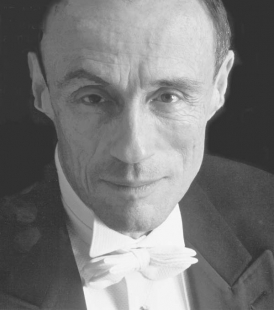| MILESAGO: Australasian Music & Popular Culture 1964-1975 | Obituaries |
PATRICK FLYNN (1936-2008)
 Obituary by Tony Stephens, Sydney Morning Herald, 3 November 2008
Obituary by Tony Stephens, Sydney Morning Herald, 3 November 2008
Although his early inclination was to classical musical, Flynn made his name in Australia through the original productions of the rock musicals Hair and Jesus Christ Superstar. He went on to work as a conductor and composer across a broad musical spectrum of symphony, ballet, opera, film and theatre.
Flynn, who has died in Los Angeles at 72, was born in Birmingham, England, and brought up by Jack Flynn, a steel foreman, and Lillian Flynn, a homemaker. He won Britain's Cassell Prize in piano as a student and received his diploma in conducting from the Royal Academy of Music in London, where he caught the attention of academy judge Sir John Barbirolli, who took him on as a student conductor.
His piano teachers included Julius Katchen and he became an associate of the Royal College of Music in piano performance, in 1962. By 1968, after serving in the army for two years, including giving piano concerts for British troops and the public in Singapore and other Asian cities, he had his licentiate of the Royal Academy of Music in conducting.
Flynn worked in New Zealand before coming to Australia. In 1969 he was the musical director for Harry M. Miller's production of Hair at the Metro Theatre in Kings Cross. The show was critically and commercially successful, and not just for its brief nude scene, which attracted much controversy.
He was a staff conductor for the Australian Opera between 1970 and 1977, but won more acclaim as musical director for Hair, Jesus Christ Superstar, billed as a rock opera in 1972, and later Joseph And The Amazing Technicolour Dreamcoat. He composed scores for documentaries, TV and films such as Caddie, Mad Dog Morgan and Sunday Too Far Away, numerous TV jingles and the rock opera Ned Kelly. He conducted for the Canberra Festival.
Noted for his vast repertoire and rare use of a score or
baton,
Flynn was described by the Press Enterprise's Jean Pierre
Barricelli as "the complete conductor, the podium equivalent of a
polymath" and by Britain's The Daily Telegraph as
"a
masterly artist … a conductor to treasure". Clive Barnes
wrote
of him in The New York Times as "a bizarre
conductor of
enormous talent".
Orchestras and festivals with whom he worked included the BBC, the Paris Opera, the Spoleto and Varna International Festivals, orchestras in Rio de Janeiro, Cologne, Louisville, Manhattan and Florida, and ballet and dance companies in the United States, Britain, New Zealand and the Netherlands.
For the Australian Opera in 1975, Flynn conducted Tales Of Hoffman and Rigoletto, although he was replaced for the Sydney performances of Rigoletto by Carlo Felice Cillario and William Reid. His conducting of Bertolt Brecht's Rise And Fall Of The City Of Mahoganny was seen to be "different". He was certainly a risk taker with his music.
Flynn eventually left Australia feeling that his rock successes were sometimes held against him. He claimed to have been told by a prospective employer: "It's a long way from Superstar to Stravinsky." He said: "The arts in Australia are in the dark ages … At 38, I haven't got that much time to spare. I'm freaking out."
Flynn moved to New York, where he was a staff conductor with the American Ballet Theatre and worked with the Dance Theatre of Harlem and the San Francisco Ballet. He wrote orchestrations and incidental music, including for Mikhail Baryshnikov's Don Quixote.
He came back to Australia in 1992 for Jesus Christ Superstar - The Concert, with John Farnham as Jesus and Kate Ceberano as Mary Magdalene.
Flynn settled in California, where he had been music director of the Riverside County Philharmonic until his sudden death. He was also music director of Michigan's Saginaw Bay Symphony Orchestra and a guest conductor with the Finnish National Opera and Holland Sinfonia. He had been briefly married in Sydney to a dancer, after which he celebrated with a "fantastic divorce party".
In America, he married Jacqueline Porter, a former Broadway dancer and teacher. They were divorced after five years but remained good friends. There were no children.
References / Links
Tony Stephens
"Music made his world go around"
Sydney Morning Herald, 3 November 2008
http://www.smh.com.au/articles/2008/11/02/1225560642328.html